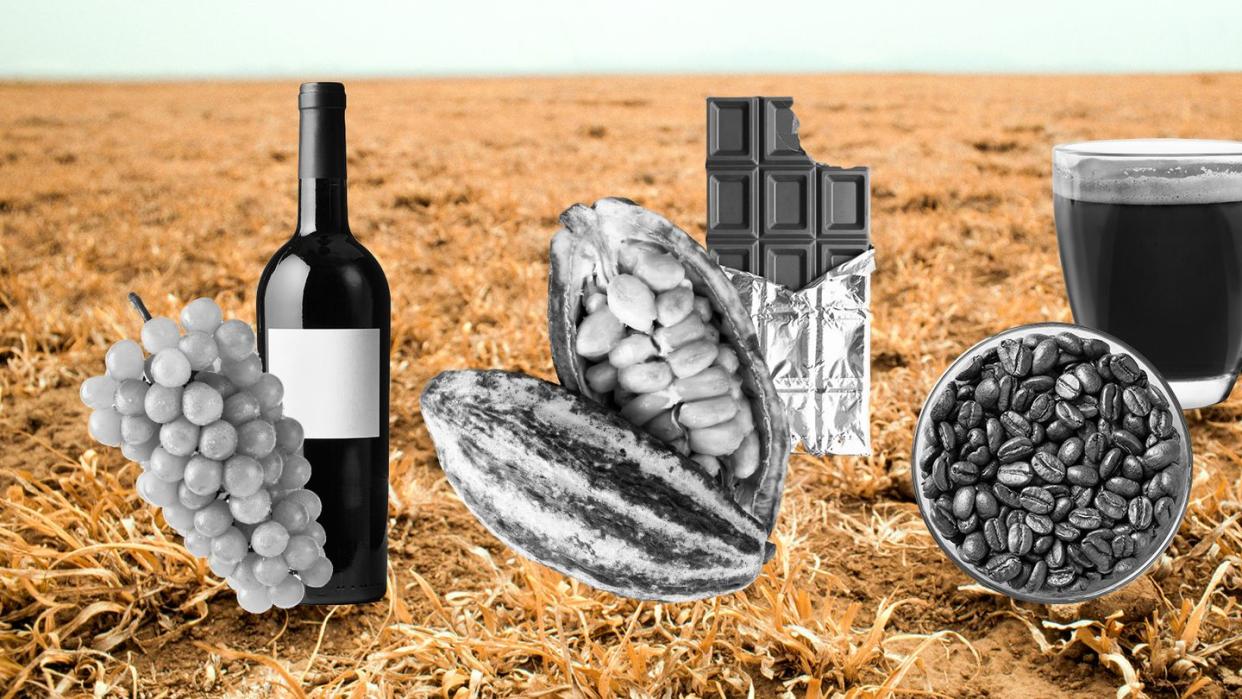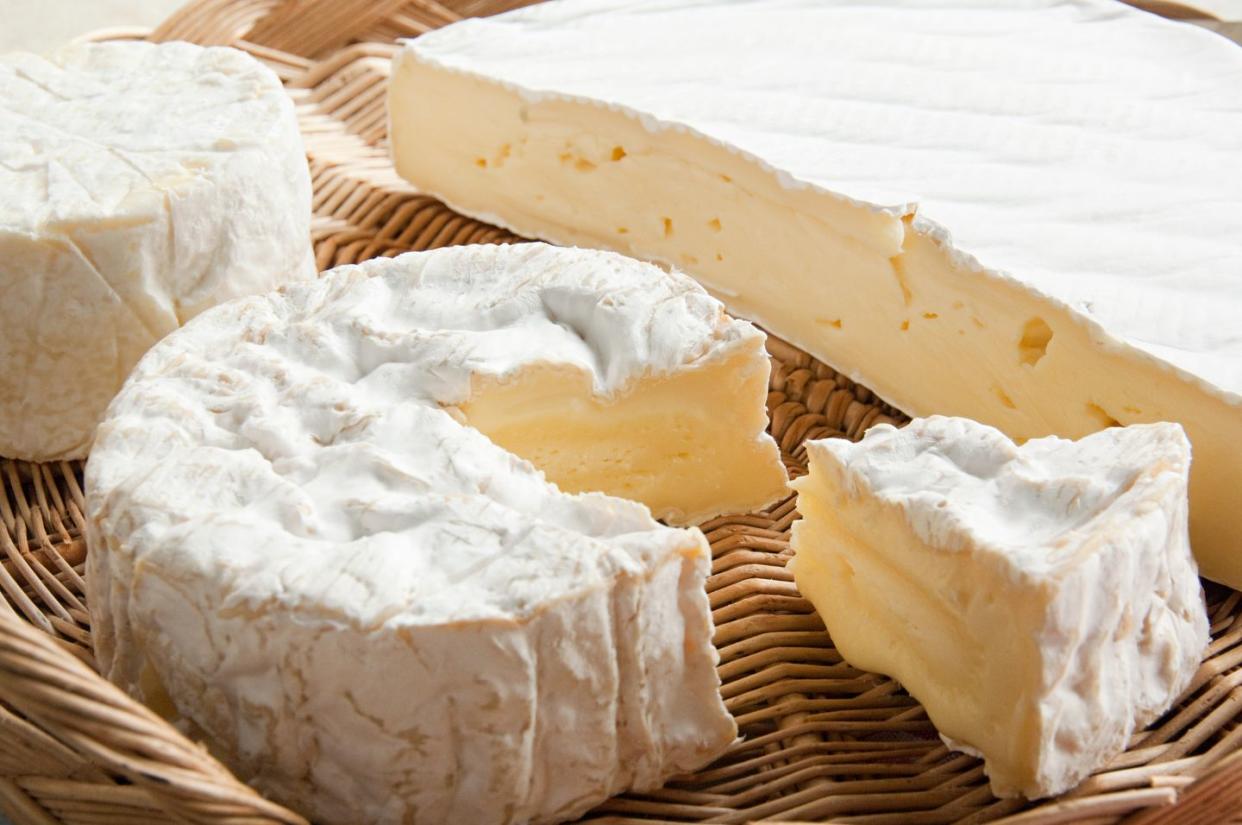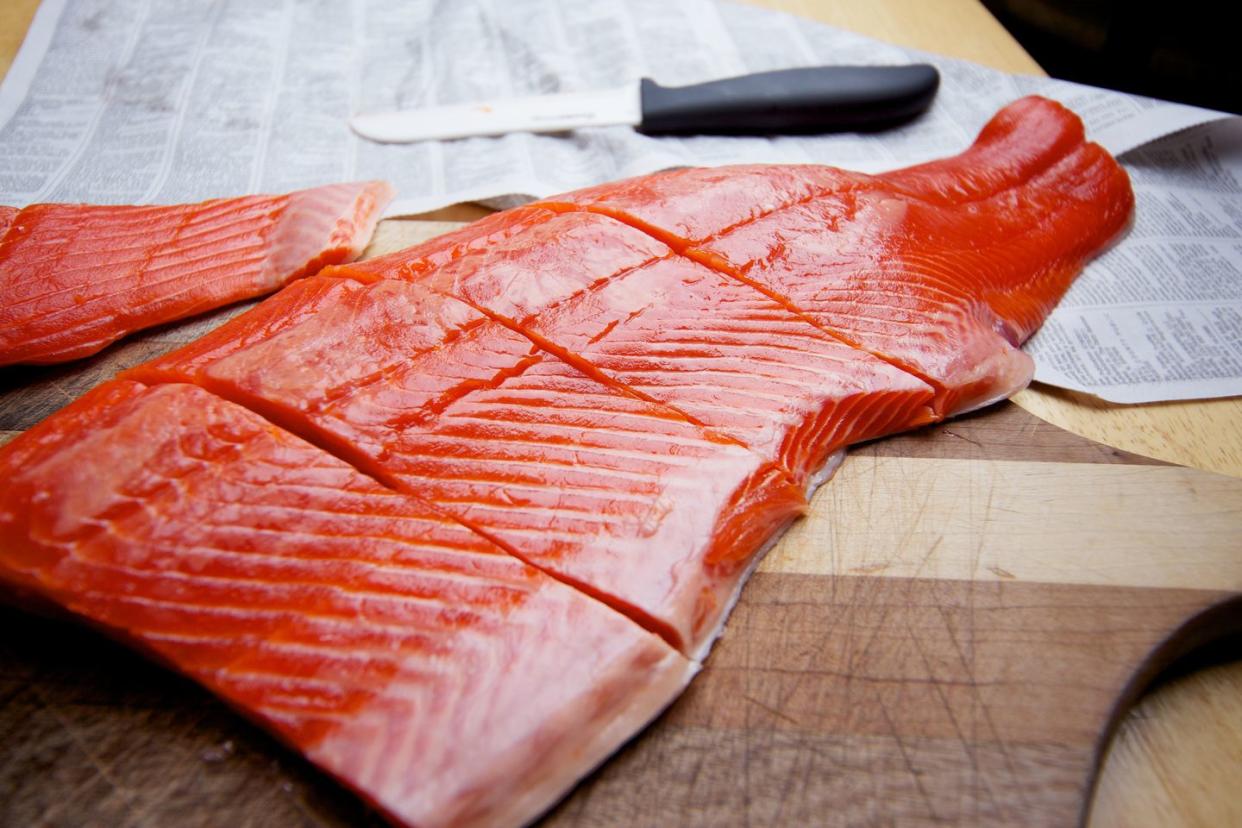Could Coffee Go Extinct? Climate Change Is Threatening Your Favorite Foods

What would the world be like without chocolate or Champagne? We shudder to think about it. Or even worse, a morning without coffee? The depressing thing is, these are just a few of the foods and drinks that could be impacted by climate change.
From rising temperatures to deforestation, there are a variety of reasons why some food items have an uncertain future. Endangered species, according to National Geographic, experience a loss of habitat or genetic variation. The widely used IUCN Red List of Threatened Species documents thousands of species and the threat levels they face. And since 1996, Slow Food USA's program The Ark of Taste has been cataloguing endangered products around the world—and there are thousands.
While not all of the products listed below are classified by the IUCN as "endangered," some face threats of climate change according to recent studies. These are just some of the food and drinks that could be negatively impacted by a changing planet.
Coffee
About 60 percent of all wild coffee species could go extinct, according to a 2019 study in Science Advances. There are 124 coffee species total, and 60 of these make the cut for potential extinction, while 40 are endangered. And the popular Arabica coffee species, the one you might have in your pantry, is considered endangered by the IUCN.
French Cheeses

The French delicacy camembert is "on the verge of extinction," according to an article by the French National Center for Scientific Research. Camembert and brie made headlines recently because of their uncertain fates. Around the 20th century, a single strain of Penicillium camemberti fungus started to be used for camembert and brie. Over time, the fungus lost genetic diversity and its ability to produce sexual spores, which are needed to create the soft, creamy cheese.
Chocolate
Yes, you read that right. Chocolate made headlines about seven years ago for its potential to go extinct by 2050. Cacao, which is used to make chocolate, can only be produced near the equator under certain conditions. And according to the National Oceanic and Atmospheric Administration, by 2050 much of the cacao cultivation area in West Africa will be less suitable for growing the plant. While cacao isn't considered endangered by the IUCN yet, the effects of climate change could change this in the future, as it can only be grown under certain conditions.
Salmon

We love grilled salmon and blackened fish tacos, but amongst the several species of salmon, some are endangered. Under the Endangered Species Act, some sockeye salmon, which is native to the Pacific, are considered endangered or threatened. Additionally, two species of chinook salmon are endangered, while seven are threatened.
Wine
There have been a lot of stories over the years about wine going extinct, but there aren't many grape species that are actually considered "endangered." Rather, they face threats due to climate change. In 2020, TIME reported that due to climate change, the flavor of French wine has been changing. And NPR reported earlier this year about the taste of Champagne changing as a result of the changing climate's effects on grapes.
Coyo Avocado
Native to Central and South America, the coyo avocado has been deemed endangered by the IUCN due to habitat loss. While it comes from the same genus as the avocado we see in supermarket, it's not quite the same fruit.
You Might Also Like
